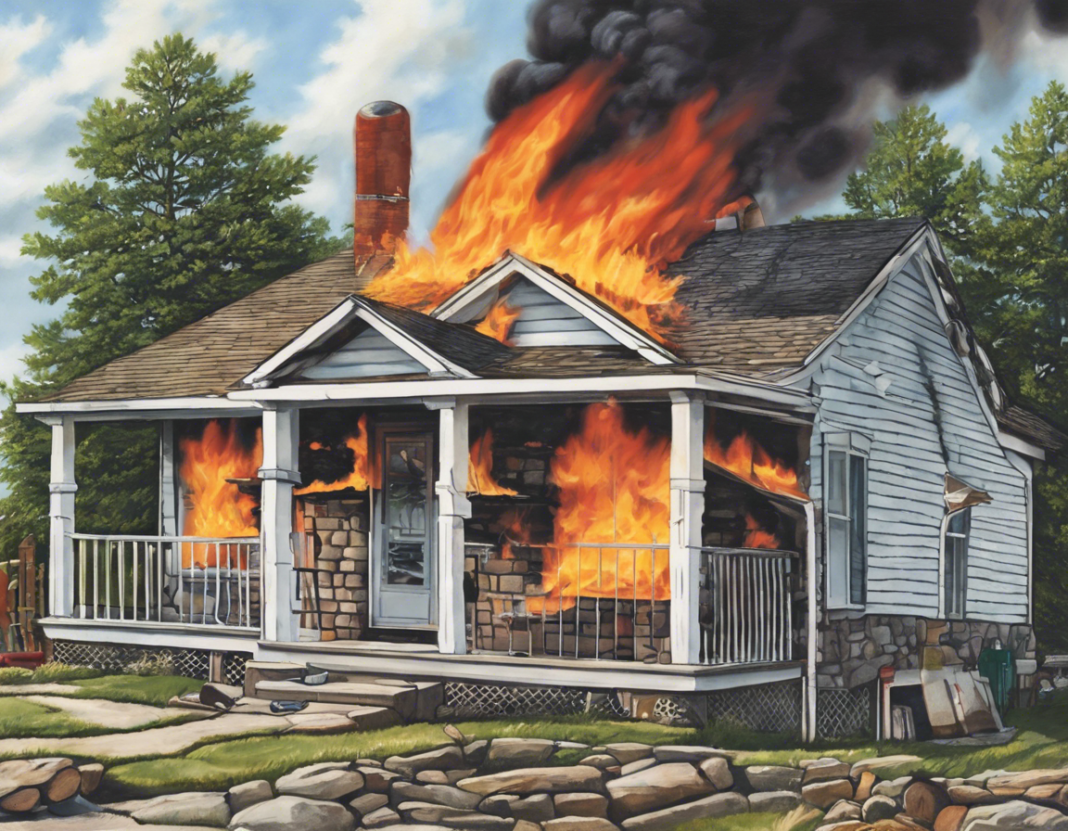Propane is a versatile and widely used fuel that powers many homes and businesses. However, it is crucial to be aware of the symptoms of a propane leak as it can present serious health and safety risks. Propane leaks can occur due to various reasons, such as faulty appliances, damaged gas lines, or improper storage. Recognizing the signs of a propane leak early can help prevent accidents, injuries, and even fatalities.
Signs of a Propane Leak
1. Rotten Egg Smell
One of the most common indicators of a propane leak is the distinctive odor of rotten eggs. Propane suppliers add a chemical called ethyl mercaptan to the gas to give it a strong, unpleasant smell. This odor is purposely added to alert individuals of a potential gas leak, as propane is naturally odorless.
2. Hissing or Whistling Sounds
If you hear hissing or whistling sounds near a propane appliance or tank, it could be a sign of a leak. This noise may indicate that gas is escaping from a connection or a damaged component. Do not ignore any unusual sounds, and assess the situation immediately.
3. Physical Symptoms
Propane leaks can cause various physical symptoms in individuals who are exposed to the gas. These symptoms may include dizziness, nausea, headaches, fatigue, and breathing difficulties. If you or others in your vicinity experience these symptoms and suspect a propane leak, evacuate the area and seek fresh air immediately.
4. Dead Plants or Discolored Flames
In outdoor environments, a propane leak can cause nearby vegetation to die unexpectedly. If you notice dead or discolored plants near a propane tank or line, it could be an indication of a leak. Additionally, propane-fueled appliances might produce yellow or orange flames instead of the usual blue flame when functioning correctly.
5. Ice Formation
In colder climates, a propane leak can cause frost or ice formation on the exterior of a propane tank or its connecting components. This abnormal icing can occur due to the rapid evaporation of propane gas, which absorbs heat from the surroundings as it escapes.
What to Do If You Suspect a Propane Leak
If you suspect a propane leak in your home or business, it is essential to act quickly and follow these steps:
- Do not light matches or use lighters.
- Avoid turning electrical appliances on or off.
- Evacuate the premises immediately.
- Do not touch any switches or thermostats.
- Call your propane supplier or emergency services from a safe location.
- Do not re-enter the area until it has been deemed safe by professionals.
Preventing Propane Leaks
To minimize the risk of propane leaks, consider implementing the following preventive measures:
- Schedule regular maintenance for your propane appliances and storage systems.
- Inspect gas lines and connections for signs of wear or damage.
- Install carbon monoxide detectors in your home for early detection of gas leaks.
- Store propane cylinders in well-ventilated areas away from ignition sources.
- Educate household members on propane safety and emergency procedures.
Frequently Asked Questions (FAQs)
Q1: Can propane leaks occur without the smell of rotten eggs?
A1: Yes, propane leaks can occur without the distinctive odor of rotten eggs. In some cases, a leak may be odorless, making it crucial to install gas detectors for additional safety.
Q2: How often should I have my propane appliances inspected?
A2: It is recommended to have your propane appliances inspected annually by a qualified technician to ensure they are operating safely and efficiently.
Q3: Is it safe to use propane appliances during a power outage?
A3: It is generally safe to use propane appliances during a power outage as long as they are properly ventilated and maintained. Avoid using outdoor appliances indoors.
Q4: Can propane leaks cause carbon monoxide poisoning?
A4: Yes, propane leaks can result in carbon monoxide poisoning if the gas is not burned completely. Install carbon monoxide detectors in your home to detect any buildup of this toxic gas.
Q5: How can I check for propane leaks myself?
A5: To check for propane leaks, you can perform a soapy water test by applying a solution of water and liquid soap to gas connections. If bubbles form, it indicates a leak that requires immediate attention.
In conclusion, being able to recognize the symptoms of a propane leak and knowing how to respond effectively can be life-saving. Prioritize propane safety in your home or business by staying informed, conducting regular maintenance, and acting promptly in case of a suspected leak. Remember, when it comes to propane safety, vigilance is key.

